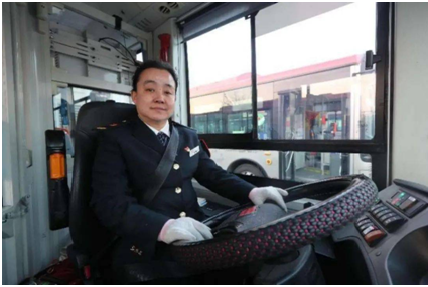By Zhong Yin, People’s Daily
A foreign journalist who has been living in China for 15 years recently shared a story about Chinese democracy on a TV show.
The story was about National People’s Congress (NPC) deputy Wang Yan, who’s also a bus driver in north China’s Tianjin municipality. As a bus driver, Wang would always listen to her passengers’ opinions while formulating suggestions, and her bus was thus turned into a “mailbox” receiving public voices.
The foreign journalist said Wang’s story mirrored China’s democratic system, a system that suits China’s national condition.
The whole-process people’s democracy is developed based on China’s national conditions. It carries distinctive Chinese characteristics and reflects the common pursuit of mankind for democracy. It promotes China’s development and the rejuvenation of the Chinese nation, and contributes a new model to the international political spectrum.
There’s a saying in Chinese that “People should not wear shoes of the same size; they should wear shoes that suit their feet.”
Democracy is formed by the human society over hundreds and even thousands of years. However, there is no fixed model of democracy as countries vary in history, culture and national conditions.
Rather than following the western ways of modernization, China has paved its own path. It didn’t copy the western models of democracy, but created a Chinese one.
The 1.4 billion Chinese people, accounting for nearly 1/5 of the global population, are the real masters of their country and enjoy extensive rights and freedoms. This has significantly reinforced the confidence of developing countries in developing their own democracy.
In judging whether a particular form of democracy works, one needs to see whether it is adapted to a country’s history and culture, whether it conforms to the country’s conditions, whether it can deliver political stability and social progress, whether it can improve people’s lives, whether it can win public support, and whether it can contribute to advancing the progressive cause of humanity.
China’s whole-process people’s democracy is a combination of electoral democracy and consultative democracy, and is applied through a combination of elections, consultations, decision-making, management and oversight.
It ensures that the Chinese people can voice their concerns effectively and thoroughly in every step of the way. They can participate in state political affairs. From something as small as everyday needs to something as big as national reform and development, the Chinese people’s wills are reflected to the fullest extent.
In today’s China, the Chinese people enjoy the right to stand for election, the right to vote, and the right to extensive participation. They have the right to express their expectations and the right to have those expectations fulfilled. They also have the right to contribute to national development and the right to share the fruits of development.
An important reason for China to have ensured political stability and social progress while promoting democracy is that the country devises the most suitable form of democracy in accordance with its characteristics and realities – a basic principle China adheres to for developing democracy.
Democracy is not only a way of domestic governance, but also a principle in global governance.
China is a faithful and exemplary actor in pursuing, exploring and practicing democracy. It endeavors to increase democracy both within its own territory and between nations.
China proposes to build a global community of shared future, and presses for a new model of international relations based on mutual respect, fairness and justice, and win-win cooperation. It promotes the Global Development Initiative and the Global Security Initiative, and firmly supports the UN to play a greater role in international affairs. It calls for higher-quality development of the Belt and Road Initiative, and advocates building an open world economy.
Facing profound changes unseen in a century, China always makes the future of humanity its priority, upholds the principle of democracy in international relations, and promotes democracy in international relations.
World affairs should be managed through consultation by governments and peoples of all countries. It is a principle of democracy in dealing with international affairs, and an inspiration for the world drawn from China’s democratic practices.
As the Chinese saying goes, “delicious soup is made by combining different ingredients.” Political systems vary from civilization to civilization, and each has its own strengths. China has full confidence in its democracy, and it also fully respects other countries’democracy.
Looking into the future, China will firmly safeguard democracy in international relations while improving its own democracy, and work with the rest of the world to create a better future for mankind.













